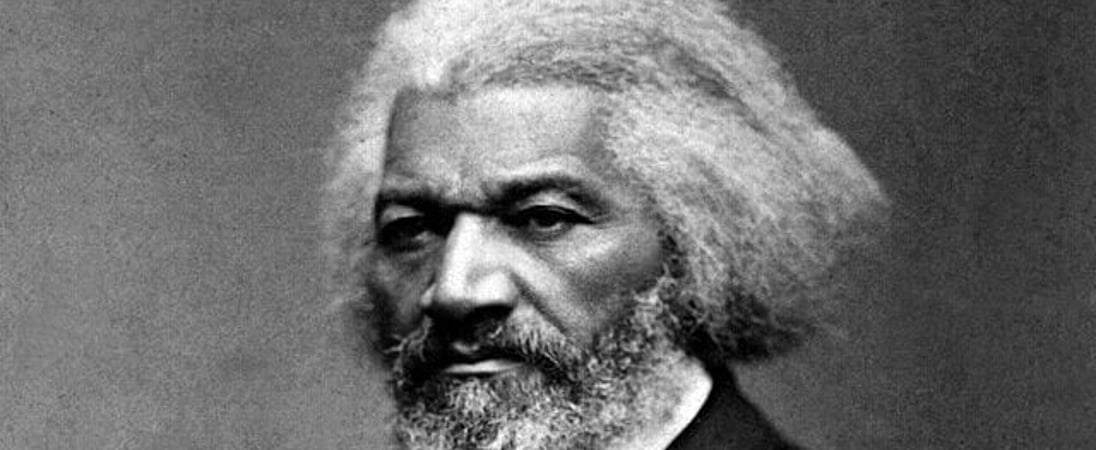
Frederick Douglass' birthday
Frederick Douglass, born on February 14, 1818, led a remarkable life. He grew up enslaved but bravely escaped to freedom.
Douglass became a powerful speaker, fighting against slavery. His writings and speeches inspired many. He worked tirelessly for justice, making a lasting impact on American history.
Frederick Douglass’s Early Years
Frederick Douglass was born into slavery in Maryland in 1818. His early life was tough filled with hardships.
Young Frederick rarely saw his mother, who lived on a distant farm. He faced cruel treatment from his owners. Despite these challenges, Douglass had an unbreakable spirit.
His education journey began unexpectedly. Douglass was 12 when his owner’s wife started teaching him the alphabet. However, it was soon forbidden.
This only fueled his desire to learn. Douglass cleverly made friends with white children in the neighborhood. They helped him learn to read. Newspapers and books became his secret teachers.
This self-taught reading skill opened new worlds for Douglass. He read avidly, gaining knowledge and ideas. His mind expanded beyond the life of slavery.
Through reading, Douglass began to dream of freedom. It planted the seeds for his future fight against slavery. His thirst for knowledge became a key to his later success.
Triumphs of Frederick Douglass
Frederick Douglass’s life was a journey from slavery to prominence. After escaping to freedom in 1838, he changed his name. This marked the start of a new chapter. In the North, Douglass became a fierce advocate for freedom.
He quickly rose as a leading voice against slavery. Douglass’s powerful speeches moved many. He described his life as an enslaved person with raw honesty. His words stirred people’s hearts and minds. They began to see the cruel reality of slavery.
Douglass didn’t stop at speeches. He became a writer, too. In 1845, he published his autobiography. Titled “Narrative of the Life of Frederick Douglass, an American Slave,” it became a bestseller. The book opened more eyes to the horrors of slavery. It also showed Douglass’s remarkable journey from being a slave to a free man.
His influence reached beyond America. Douglass traveled to Ireland and Britain, gaining international support. He met with famous leaders and spoke about abolition. These efforts helped him gather funds to start his anti-slavery newspaper, “The North Star.”
Douglass also advised U.S. presidents. He was a consultant to Abraham Lincoln during the Civil War. His insights helped shape the fight against slavery. After the war, he continued to fight for equality. Douglass championed rights for African Americans and women.
Frederick Douglass’s life was a testament to courage and change. From an enslaved person to a leader, his journey inspired countless people. His legacy reminds us of the power of resilience and the fight for justice.
Ten Fascinating Facts About Frederick Douglass
Name Change: Born Frederick Augustus Washington Bailey, he chose “Douglass” after a character in Sir Walter Scott’s poem “The Lady of the Lake.“
Women’s Rights Advocate: Douglass strongly supported women’s rights. He attended the Seneca Falls Convention in 1848, a pivotal women’s rights gathering.
International Impact: In addition to Ireland and Britain, Douglass traveled to France and Egypt, spreading his anti-slavery message worldwide.
U.S. Marshal: In 1877, Douglass was appointed U.S. Marshal for the District of Columbia, the first African American to hold such a high federal office.
Friendship with Harriet Tubman: Douglass and Harriet Tubman, another famous figure in the fight against slavery, shared a strong friendship and mutual respect.
Haitian Ambassador: President Grant appointed Douglass as the U.S. minister to Haiti, a role he served in from 1889 to 1891.
Home as a Historic Site: Douglass’s final home, Cedar Hill in Washington D.C., is now a National Historic Site.
Also on this date...
National Organ Donor Day
The selfless act of giving the gift of life can bring hope and healing to those in need. It's a remarkable legacy that transcends time and spreads compassion.
International Book Giving Day
Sharing the joy of reading can transport you to far-off lands, introduce you to new friends, and unlock endless possibilities.




